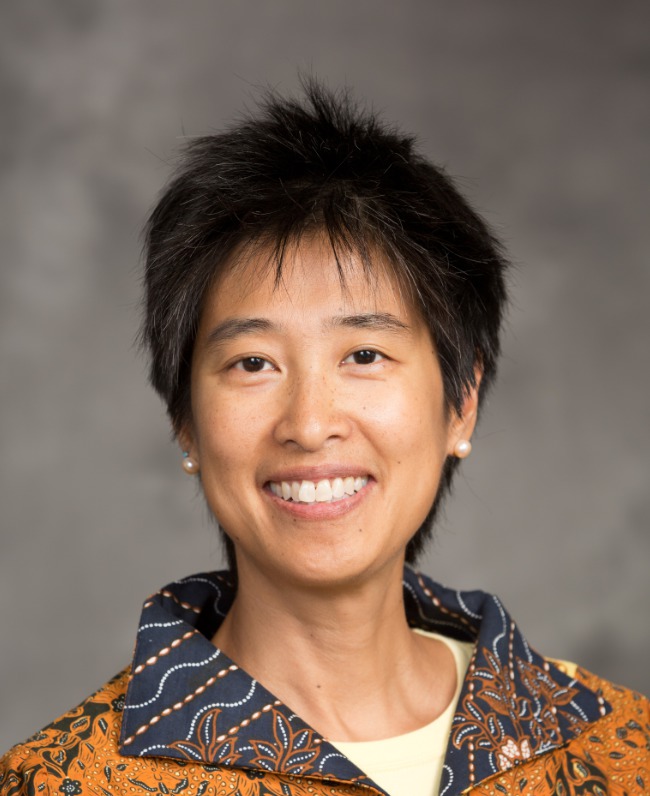Candidate Statement: Sally Oey
Nominated Office: Councilor
Affiliation: University of Michigan
Position/title: Professor
PhD institution: University of Arizona, 1995
Areas of scientific interest:
- Massive stars and young stellar populations
- star formation
- photoionization
- Lyman continuum emitters
- Lyman-alpha emitters
- massive star feedback
- galactic archaeology
- galactic chemical evolution
AAS positions:
- Annie Jump Cannon Award review panel (2009-2011)
- Congressional Visits Day representative (2000)
Other relevant positions and experience:
- AURA Observatory Council (2012-2015)
- STScI Financial Review Committee (2008-2010)
- Gemini Observatory Board of Directors (2006-2009)
- NASA Science Archives Working Group (2002-2004)
- NSF Committee of Visitors for Division of Antarctic Sciences (2009)
- NSF Committee of Visitors for Division of Astronomical Sciences (2005)
- Scientific review panels at various times for NOAO, HST, Chandra, NSF Astronomy and Astrophysics Grants, NASA Astrophysics Theory Program, Chandra Fellowship Program
Candidate Statement: Our community is now in a critical evolution, with a major transformation of our ground-based system to the LSST era; while in space, we transition to the JWST era. These revolutionary facilities will open tremendous science opportunities for us, combined with other new-generation projects, in both the near- and long-term future. At the same time, the economic recession imposed an austerity that has impeded our plans as laid out in the "Astro 2010" decadal survey. We are therefore undertaking these changes with diminished capacity, distributing fewer resources among our community. As an example, NOAO's iconic 4-m telescopes are expected to be largely supported by DOE's dark energy projects, rather than as open-access facilities for astronomy; another casualty was the International X-ray Observatory space mission. Given these conditions, it is essential that we move forward with especially circumspect planning. Our next-generation facilities, especially LSST, require large-scale preparations for new paradigms of doing science. At the same time, we must not suffocate our on-going, productive science activities. The AAS plays an important role in mediating the different needs of the community through communication, interaction, and advocacy. My priorities would be to ensure that these activities reach all stakeholders, of all demographics; and to ensure that our Society is a strong, clear voice in a rapidly evolving national and international political landscape.


